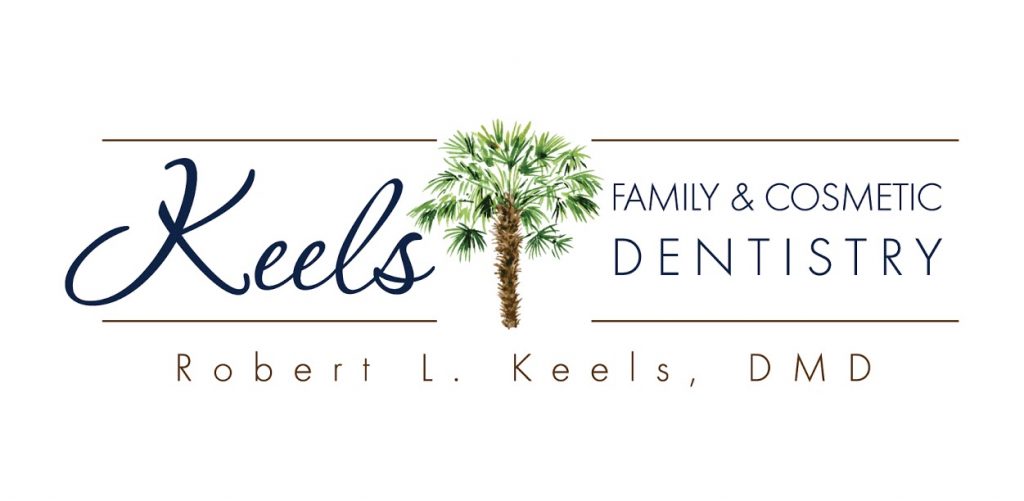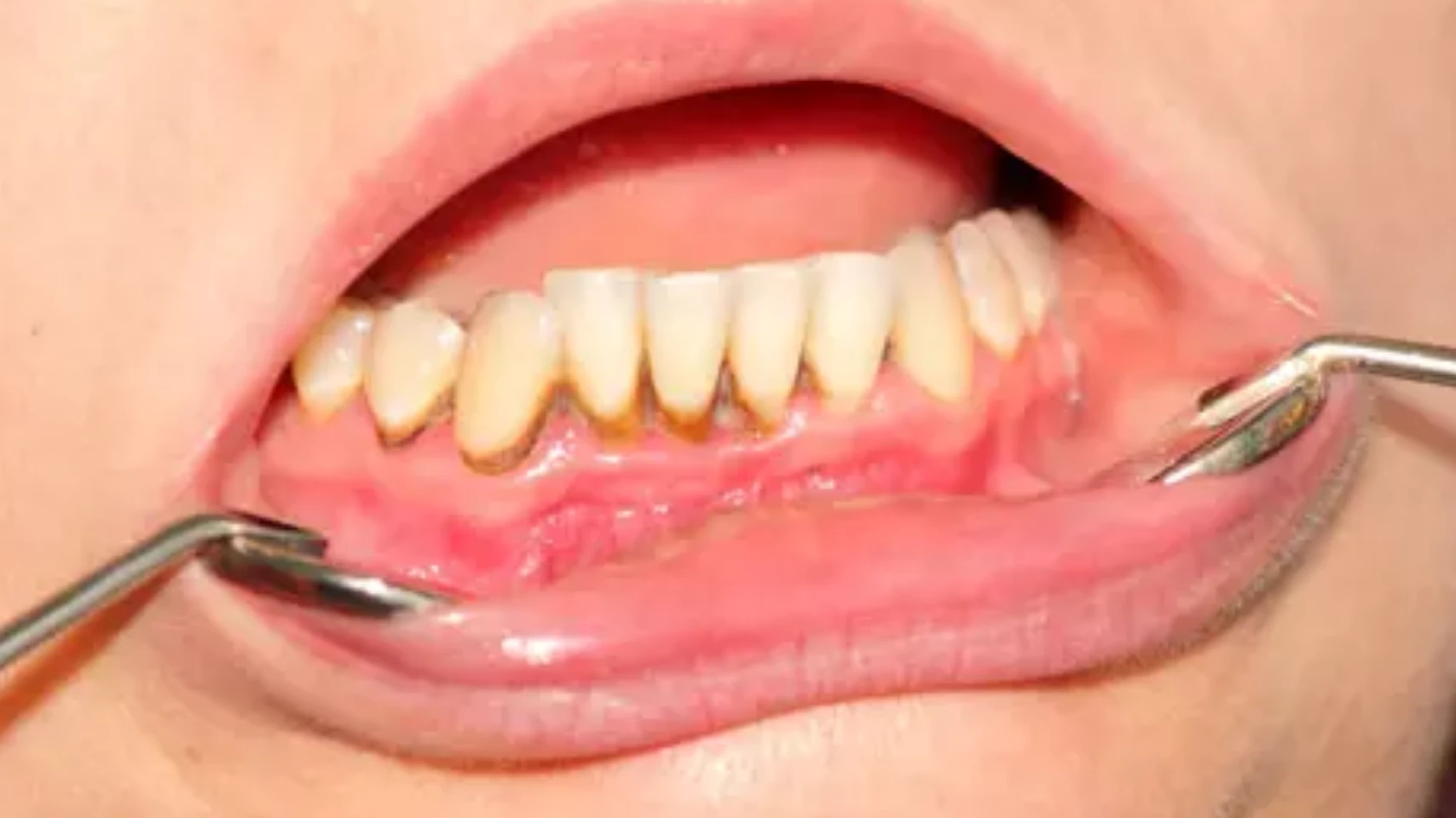SCHEDULE AN APPOINTMENT!
Dentures have come a long way in terms of both technology and design. If you’re considering dentures as a solution or an option for replacing missing teeth, there are many things you need to know.
Types of Dentures
What are Full Dentures?
Full dentures are removable dental prosthetics designed to replace all of your missing teeth and restore your smile to its former glory. These custom-made dentures are typically made from acrylic or a combination of materials, providing you with a natural-looking and comfortable solution for missing teeth.
Procedure and Process of Full Dentures
Getting full dentures involves a series of steps to ensure a perfect fit and function. First, your dentist will conduct a thorough examination of your msaouth, taking impressions and measurements to create dentures tailored specifically to your needs. Any remaining unhealthy teeth will be removed to make way for your new dentures.
Next, you will receive temporary dentures during the healing process, allowing your gums and jaw to adjust. Once your mouth has healed, your permanent dentures will be fabricated based on the impressions taken earlier. The dentist will make necessary adjustments to ensure a snug fit and optimal comfort.
Advantages and Disadvantages of Full Dentures
Advantages
- Aesthetic Appeal: Full dentures restore your smile, boosting your self-confidence and improving facial appearance.
- Functional Restoration: They allow you to chew, speak, and maintain normal oral function, making it easier to enjoy your favorite foods.
- Affordable Option: Compared to dental implants, full dentures are a more cost-effective tooth replacement solution.
- Non-Invasive: The process of getting dentures does not require surgery, making it a less intrusive option for tooth replacement.
Disadvantages
- Adjustment Period: Initially, you may experience some discomfort and difficulty speaking or eating while your mouth adapts to the dentures.
- Adhesive Dependency: Dentures may require denture adhesives to stay securely in place, which some people may find inconvenient.
- Bone Resorption: Over time, wearing dentures can lead to gradual bone loss in the jaw, potentially affecting denture fit and facial structure.

Does Insurance Cover Dentures?
Dental insurance coverage for full dentures can vary depending on your insurance plan. Many dental insurance policies do offer coverage for dentures, but it’s essential to check your specific plan for details regarding deductibles, copayments, and any limitations.
How Long Do Dentures Last?
The lifespan of full dentures depends on several factors, including the quality of the dentures, your oral health, and how well you take care of them. On average, dentures can last between 5 to 10 years. Over time, normal wear and changes in your mouth’s shape may require adjustments or replacements.
What to Expect with Full Dentures
During the initial days of wearing full dentures, you might experience some soreness, irritation, or increased saliva flow. These are normal reactions as your mouth adapts to the dentures. It’s essential to follow your dentist’s instructions on wearing and caring for your dentures during this adjustment period.
How to Care for Dentures
Proper care is crucial to maintain the longevity and hygiene of your full dentures:
- Clean your dentures daily using a soft brush and denture cleaner. Avoid using regular toothpaste, as it can be too abrasive and damage the dentures.
- Remove dentures at night and soak them in water or a denture-cleaning solution to keep them moist and maintain their shape.
- Handle dentures with care, avoiding dropping them, which can cause damage.
- Regularly visit your dentist for check-ups, adjustments, and to ensure your dentures fit correctly.
With full dentures, you can regain your smile and enjoy life to the fullest. If you have any concerns or questions, don’t hesitate to reach out to your dentist for guidance and support.
Partial Dentures
A partial, or “removable” denture is a device that replaces missing teeth. It consists of artificial teeth attached to gum-colored plastic resin bases that are custom-fitted to the remaining gums by the dentist.
Difference Between Full and Partial Dentures
Full dentures are designed to replace an entire set of missing teeth, either on the upper or lower jaw or both. In contrast, partial dentures are utilized when you have one or more missing teeth but still have some natural teeth remaining.
Partial dentures are anchored to your existing teeth, filling in the gaps and creating a seamless smile. Unlike full dentures, they offer a more personalized fit and better functionality for individuals with fewer missing teeth.
How Many Teeth Do You Need for Partial Dentures?
The number of teeth needed for partial dentures depends on your unique dental situation. Generally, the more teeth you have missing, the more extensive the partial denture will be. Your dentist will conduct a thorough examination and assess the condition of your remaining teeth and gums to determine the optimal number of teeth required for your partial denture.
With advanced dental technology, even individuals with a limited number of natural teeth can benefit from partial dentures to enhance their oral health and appearance.
Can You Eat All Foods with Partial Dentures?
Partial dentures are designed to restore your ability to chew and speak comfortably. However, as with any dental appliance, certain dietary considerations are essential to ensure the longevity and effectiveness of your partial dentures.
Initially, it is recommended to stick to softer foods and gradually introduce harder items to allow for adjustment. Avoid extremely sticky or hard foods that may dislodge the denture or cause damage. Additionally, refrain from biting directly into very tough or crunchy foods; instead, cut them into smaller, manageable pieces.
Types of Partial Dentures
- Removable Partial Dentures Removable partial dentures are the most common type and are easily removable for cleaning and maintenance. They consist of replacement teeth attached to a gum-colored base, which is held in place by metal clasps that grip onto adjacent natural teeth. These dentures offer a cost-effective and non-invasive solution for replacing missing teeth.
- Fixed Partial Dentures (Dental Bridges) Fixed partial dentures, also known as dental bridges, are a more permanent solution for missing teeth. They are cemented in place by anchoring them to adjacent healthy teeth or dental implants. Dental bridges not only restore your smile but also prevent the shifting of remaining teeth, maintaining the natural alignment of your bite.
- Flexible Partial Dentures Flexible partial dentures are made from a flexible material that offers increased comfort and a natural appearance. They adapt easily to the contours of your mouth, making them an excellent option for patients seeking a discreet and comfortable tooth replacement solution.
With the ability to customize the number of teeth needed, a range of food choices, and various types available, partial dentures offer a versatile and practical solution to improve both oral health and self-confidence.
Implant-Supported Dentures
Are you tired of dealing with loose, uncomfortable dentures that hinder your daily activities and confidence? Implant-supported dentures might be the solution you’ve been searching for.
What are Implant-Supported Dentures?
Implant-supported dentures are innovative dental prosthetics that combine the stability and durability of dental implants with the convenience and aesthetic appeal of dentures. Traditional dentures rest on the gums, relying on adhesives to stay in place, which can lead to discomfort and a less secure fit.
Implant-supported dentures, on the other hand, are firmly anchored to dental implants surgically placed into the jawbone, ensuring a stable and natural-feeling fit.
Do I Qualify for Implant-Supported Dentures?
Implant-supported dentures can be an excellent choice for individuals who have experienced partial or complete tooth loss and are looking for a more permanent and reliable solution. However, certain factors determine whether you qualify for this treatment option.
Your oral health, bone density, and overall health play a significant role in determining eligibility. Consulting with an experienced dentist or oral surgeon is essential to assess your suitability for implant-supported dentures.
Fixed Implant-Supported Dentures
Fixed implant-supported dentures, also known as permanent dentures or fixed hybrid dentures, offer exceptional stability and functionality. These dentures are securely attached to multiple dental implants in your jaw, eliminating the need for removal for cleaning or during sleep. The result is a confident and worry-free smile that allows you to enjoy your favorite foods and activities without hesitation.
Removable Implant-Supported Dentures
Removable implant-supported dentures provide a reliable alternative for those seeking flexibility in their dental restoration. These dentures are securely connected to dental implants using special attachments, ensuring they remain stable during daily activities. The ability to remove them for cleaning and maintenance simplifies oral hygiene and promotes oral health.
Benefits of Implant-Supported Dentures
- Enhanced Stability: The primary advantage of implant-supported dentures is their stability. Unlike traditional dentures, they won’t slip or shift, allowing you to speak, eat, and laugh with confidence.
- Improved Comfort: With implant-supported dentures, you’ll experience increased comfort since they eliminate the sore spots and gum irritation commonly associated with traditional dentures.
- Natural Aesthetics: These dentures are custom-designed to complement your facial features, providing a more natural and youthful appearance.
- Preserves Jawbone Health: The integration of dental implants into the jawbone helps maintain bone density, preventing bone loss that typically occurs after tooth loss.
- Longevity: When properly cared for, implant-supported dentures can last for many years, making them a cost-effective and long-lasting solution.
- Enhanced Chewing Efficiency: With the stable foundation provided by dental implants, you can enjoy a more varied and nutritious diet without any eating restrictions.
Implant-supported dentures offer a life-changing solution for those seeking a stable, comfortable, and attractive tooth replacement option. Whether you opt for fixed or removable implant-supported dentures, you’ll experience a significant improvement in your oral health, self-confidence, and overall quality of life.
Temporary Dentures
What are Temporary Dentures?
Temporary dentures, also known as interim dentures, are removable dental appliances designed to serve as a short-term solution for individuals who have lost their natural teeth and are waiting for their permanent dentures to be fabricated or for their mouth to heal after tooth extractions.
These dentures are often made from a less durable material compared to permanent dentures, but they fulfill the essential function of restoring the appearance and functionality of teeth during the transitional period.
Can You Eat with Temporary Dentures?
Yes, you can eat with temporary dentures, but there are some important considerations. Temporary dentures may not provide the same chewing efficiency as permanent dentures or natural teeth. The material used to create them might be less sturdy, making them more prone to damage or breakage if subjected to excessive force or hard foods.
To make eating more comfortable and effective with temporary dentures, it’s recommended to start with soft foods and gradually transition to a regular diet as you become accustomed to wearing them. Chewing slowly and avoiding sticky or overly hard foods can also help prevent damage to the dentures during this transitional period.
Are Temporary Dentures More Cost-Effective Than Full Dentures?
Temporary dentures are generally more affordable than full dentures. The reason lies in the materials used and the simplified fabrication process. Full dentures are custom-made, require more precise measurements, and often utilize more durable and aesthetically pleasing materials.
On the other hand, temporary dentures are intended as a temporary solution, and as such, they are typically less expensive. They are a cost-effective option for individuals who need immediate dental restoration but are still waiting for their final, custom-made dentures to be completed.
What to Expect with Temporary Dentures
- Adjustment Period: Getting used to temporary dentures might take some time. Initially, they may feel awkward or uncomfortable in your mouth. Your tongue and cheek muscles will need to adapt to the new appliance. However, with patience and practice, most people adjust to wearing temporary dentures within a few weeks.
- Speech Changes: Temporary dentures can affect your speech initially. You may experience slight difficulty pronouncing certain words or sounds. Regular practice and speaking aloud can help improve your speech clarity with the dentures in place.
- Maintenance: Temporary dentures require proper care to ensure their longevity and functionality. Dentists typically provide instructions on cleaning and handling the dentures. It’s essential to follow these instructions diligently.
- Regular Check-ups: During the transitional period, your dentist may schedule regular check-ups to monitor your progress and make any necessary adjustments to the dentures. It’s crucial to attend these appointments to address any issues and ensure a comfortable fit.
- Gum and Tissue Changes: After tooth extraction or loss, your gums and underlying tissues will undergo changes as they heal. This could cause temporary dentures to become loose or uncomfortable. The dentist may need to adjust the dentures to accommodate these changes.
Although they are not as durable as full dentures, they offer a cost-effective and functional solution during the transitional phase. With proper care and adjustments, temporary dentures can significantly improve your quality of life until your permanent dental solution is ready.
Denture Repair
Denture repair can involve retouching, relining, rebasing, and repositioning. Retouching is the process of adjusting existing denture teeth to improve their appearance. Relining involves adding a new layer of material to the inside of the denture to adjust its fit in the mouth.
Rebasing involves making a new base for the denture and may be necessary if the old one is too worn or damaged. Repositioning involves readjusting how the dentures fit in the mouth, usually for comfort but sometimes to improve their appearance.
Dental professionals often use techniques such as these to make minor adjustments to existing dentures, making them more comfortable or improving their appearance without making a new denture. If more extensive work is needed, it may be necessary to have the dentures replaced entirely.
Replacement Dentures
Replacement dentures are generally used for individuals who have lost some or all of their teeth and need a durable, aesthetically-pleasing option to restore functionality to their smile. They can be used as either a full set of dentures designed to replace a full row of missing teeth or partial dentures designed to fill in between existing teeth.
Replacement dentures are typically made from either acrylic or nylon and can be customized to fit the individual’s mouth. They are designed to fit comfortably and securely, ensuring they stay in place while eating and speaking. These dentures also come with special attachments which help keep them secure when not in use.
The process of getting replacement dentures is typically very straightforward. During the initial visit, the dentist will take an impression of the patient’s mouth to create a custom-fit set of dentures. Once complete, they can be inserted and adjusted to fit comfortably and securely.
How much does a top pair of dentures cost?
These teeth look realistic to you a lot longer and they can be worn for several years. Complete dentures from $500–5K can vary in appearance and price. Partially acrylic sets range from $770- $1779.
What are the best looking dentures?
Dental porcelain denture is tougher than acrylic. It helps keep your dentures longer and more secure. In addition, porcelain dentures provide an aesthetic advantage in the best way that the replacement tooth looks much more resemble the natural teeth. It’s more durable to maintain teeth as we chew and talk.
Are snap-on dentures worth the money?
Snap-on dentures are a good way of other teeth and make them more comfortable. Snap-on dentures improve choking capabilities of your teeth and enhance breathability. It is possible that some people ingest tough and hard food. In comparison to dentures that are usually worn for the longest periods of time, snap-on dentures are more durable.
Call us today to schedule your appointment.
Types of Dentures
There are several types of dentures available today for you to choose from, and the price and procedure vary depending on the type. Dentures are usually removable, although there is a permanent option that some people might find more desirable for their situation. Partial dentures or fixed bridges are used when a person has only one or two teeth left in an entire arch of their mouth. Flipper-type dentures sometimes called “false teeth,” are used when a person has lost some of their teeth but still has enough to hold a partial denture in place. Full dentures are used when a person has lost all of their natural teeth and require nothing but false ones to function properly.
Implant-supported or implant-retained dentures are another option that some people might choose to go with, especially if they have only lost a few teeth thus far. These types of false teeth are attached to titanium posts that are surgically implanted into the patient’s jawbone to provide support for them. Let our Keels Family & Cosmetic Dentistry team help you find the perfect dentures for your unique situation. When you schedule your appointment, we will make a thorough diagnosis of your dental health and offer the best options for your case. Contact us to learn more about our services today!
Why Choose Keels Family & Cosmetic Dentistry?
Make An Appointment
At Keels Family & Cosmetic Dentistry, we understand that people choose our practice for a multitude of reasons. Our prime location offers convenience to our valued patients, making it easy to schedule appointments and prioritize their oral health. The trust and satisfaction of our patients, who often refer friends and family, have solidified our reputation as a professional and caring dental office within our community. Our comprehensive services range from cosmetic dentistry to dental care for the entire family, ensuring that we meet the unique needs of every member. We work with various dental insurance plans to make quality care accessible. With flexible scheduling, a warm and welcoming atmosphere, state-of-the-art technology, and a commitment to patient education, we aim to provide not just dental services but also a comfortable and personalized experience. At Keels Family & Cosmetic Dentistry, we prioritize the health and well-being of our patients above all else, fostering a strong personal connection with each individual who walks through our doors.


